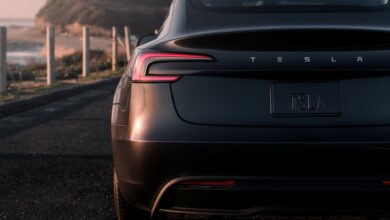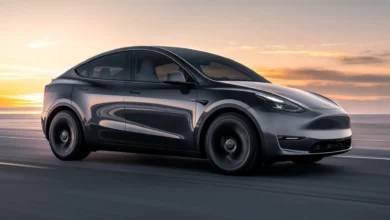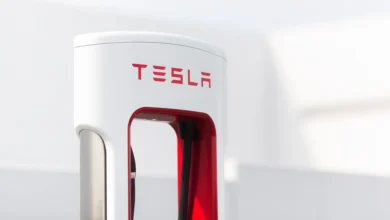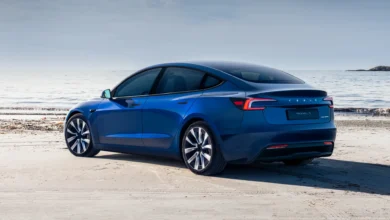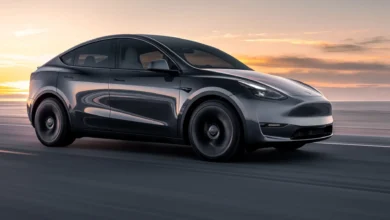
Although it has not yet arrived in Europe, and may not arrive for a few months, the Tesla Model S Plaid is still a source of publicity for the American manufacturer. An emblematic model that this week has managed to achieve a more than impressive speed record for a saloon of five meters and more than two tons of weight.
In this case, the milestone has been achieved by a Tesla Model S Plaid modified by the Canadian company Ingenext, which eliminated the Plaid software limiter that restricts the maximum speed to 320 km/h, to see its true potential when it comes to achieving its top speed.
As we can see in the video, this modified Plaid manages to reach 320 km/h without problems, and then reaches 348 km/h. And it also does so quietly with no more noise than that caused by the friction of the air with the body of the vehicle.
This figure is impressive both for exceeding the official figure, which opens the doors to modifications outside the brand in the not too distant future, and acceleration and speed figures hitherto within the reach of great supercars such as the Lamborghini Aventador SVJ, which also gets to 348 km/h, while the McLaren P1 gets to 350 km/h. But as we see, two proposals that sacrifice all the comfort and space in favor of design and performance, and that also multiply the cost of Tesla several times.
For the occasion, the testers used a runway from the Trois-Rivières airport, Quebec, 2.9 kilometers long. In addition to removing the limiter, Ingenext outfitted their Plaid with Mountainpass Performance brakes and Michelin Pilot Super Sport tires. For the rest, the propulsion system and the rest of the elements were the series ones. Including its single-speed transmission that, as we can see, does not prevent it from reaching stratospheric figures.
It remains to be seen if Tesla takes note of these types of modifications and updates a Model S Plaid that is very striking in its figures, 1,020 hp of power and acceleration to 100 km/h in 2 seconds, but which is guilty of being a thoughtful car. for short tests and in a straight line, since in its series version, it does not achieve a minimum performance on circuits such as the Nürburgring, where its braking system fails miserably.
Something that will be solved in a few weeks with the arrival of the Tesla ceramic brake kit, which was scheduled to arrive last June, that is, for $20,000 for the set.
